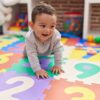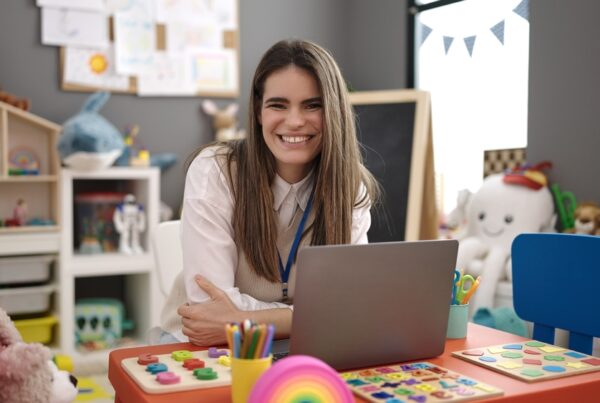Children as young as four should be tested on their literacy skills if Australia wants to improve its dismal international education rankings.

The push by some of Australia’s top education experts comes as the nation’s reading score has continued to slide in the international table over the past decade, with some blaming the lack of an evidence-based national reading program for pre-schoolers.
One early childhood education group has launched a new research project to record the literacy levels of kids at the age of four and then again at six.
So far 1000 children attending Mindchamps centres have had their first assessment, but the plan is to expand it to include children in other settings.
Eventually, the data will be used to compare Australian standards with those in the US and Singapore, where kids that age already undergo national tests.
Steven Schwarz, a former chairman of the Australian Curriculum, Assessment and Reporting Authority (ACARA), said research like this is needed if Australia wants to improve standards.
He said Australian children don’t undertake any national tests until the age of nine, when they first take the NAPLAN test – and if they are behind at that stage, it can be hard to catch up.
Mr Schwarz said there’s currently not enough knowledge about pre-schoolers, but the earlier children get help if they are behind, the better.
“We want to know whether they have adequate pre-literacy skills before they get to preschool,” Mr Schwarz said. “Then we need to compare their levels before they leave preschool to see if they have improved.”
He said Australia has gone through “many fads in education” over the years which is why evidence-based research is needed to find out what works best.

Director of Education at the Centre for Independent Studies Glenn Fahey is more cautious, stating that there is some “community anxiety” about teaching or testing children at a very young age.
“It’s better to identify children at some risk and introduce light touch help,” Mr Fahey said.
He said the federal government is spending a lot of money on subsidies in the early childhood sector, therefore it should set targets about what children should have achieved by the time they leave preschool.
Brian Caswell, an author and former teacher, who is leading the research at MindChamps, said developing pre-literacy skills such as vocabulary and phonics is vital before the age of seven.
“If you don’t have the foundation skills before they get to primary school, it’s particularly difficult to catch up,” Mr Caswell said. “This becomes evident by Year 9.”
He said the new research will help measure the effectiveness and strategies of the teaching in its early learning centres and preschools.
Early childhood educator Rebecca Watson said she has worked for most of the big childcare companies where there is a big emphasis on free play, but that many four-year-olds are ready to do more formal work, and a better balance is needed.
She also said many centres have literacy programs, but it’s “ad hoc” and many are not evidence-based.
The aim is to test the child’s current literacy capabilities and provide early intervention and extra support for kids who are showing lower literacy skills.
Former teacher and Senior Fellow at Australian Catholic University, Kevin Donnelly, said that the introduction of tests will add to the workload of teachers already swamped with bureaucracy, believing what is needed is getting parents to be more aware of the need to read to their children, to interact, talk and ask them questions.

Mr Caswell said that kids who read for pleasure, not just purpose are the most successful in literacy. And the love of reading needs to start at home.
“Children should be sitting on your knee, pointing to the pictures and words and feeling a part of the process,” Mr Caswell said. “In that moment they should feel warmth and love, accomplishment and positivity.”
What parents can do to help:
- Read with your child, not to your child, by getting them involved in the story, asking them questions about the pictures and what they think might happen next?
- Make reading with your child a time where they feel warmth, love and connection which will help create positive associations with reading.
- Your child should have experienced 1000 books before they start school, it can be the same one 100 times.
- Spend time talking to your child, pointing out signs when you’re walking down the street. Vocabulary is important too.
Julie Cross, The Daily Telegraph









